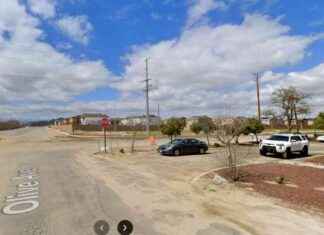An AFP reporter saw trucks of fuel entering the Kerem Shalom goods crossing in the southern Gaza Strip. On Saturday, Gaza’s only power plant was shut down due to a fuel shortage.
The crossings between the Jewish state and the Gaza Strip, closed Tuesday by Israel, were reopened “for humanitarian needs on Monday”, announced in a statement the Cogat, the body of the Israeli Ministry of Defense which supervises civilian activities in the Palestinian Territories.
“The return to routine will be based on developments in the situation and if security is respected,” the statement added.
After this truce negotiated by Egypt, a historic intermediary between Israel and the Palestinians, the Jewish state also announced the resumption of rail traffic in the area close to the Gaza Strip and authorized its citizens living in the villages bordering the Gaza Strip. Palestinian enclave to leave the shelters.
– Medicines, electricity –
On Sunday, Israeli Prime Minister Yair Lapid’s office said the truce would come into effect at 11:30 p.m. local time, while stressing that his country “reserves the right to respond firmly to any violation”.
In Gaza, where it is based, the Islamic Jihad confirmed that it would “cease hostilities” from that time, but also warned that it reserved “the right to respond to any (new) aggression” Israeli.
Joe Biden hailed the ceasefire and thanked Egyptian President Abdel Fattah el-Sissi for his country’s role in brokering it. The US president also called for investigations into the civilian casualties, which he called a “tragedy”.
The UN envoy for the Middle East Tor Wennesland welcomed the truce agreement on Twitter but said “that the situation remains very fragile”.
The truce agreement provides, among other things, “Egypt’s commitment to work for the release of two prisoners” from Islamic Jihad in the hands of Israel, the Palestinian group said.
On Sunday, seventeen Palestinians including nine children were killed in Israeli raids including on Jabaliya, Gaza City and Rafah, said the health ministry of the Palestinian armed movement Hamas, in power in the enclave under Israeli blockade since more than fifteen years.
Since the start of the Israeli operation on Friday, “44 Palestinians have been martyred, including 15 children” and “360 have been injured”, according to the ministry, which also reported on entire buildings destroyed in the strikes.
Three people have been injured in Israel by rocket fire since Friday, according to rescue workers. According to the army, hundreds of rockets have been fired from Gaza since Friday, the vast majority having been intercepted.
The Israeli authorities have also claimed that some of the Palestinians killed would have perished because of failed rocket fire from Islamic Jihad towards Israel, which fell in the Palestinian enclave.
In Gaza, the director of al-Shifa hospital said his establishment urgently needed medicine and electricity.
– “Preemptive attack” –
The Israeli army presented its operation launched Friday as a “preemptive attack” against Islamic Jihad, during which its main military leaders in Gaza, Tayssir Al-Jabari and Khaled Mansour, were killed along with several fighters of the group .
The death of the military leaders was confirmed by the Islamic Jihad, considered “terrorist” by Israel, the United States and the European Union.
The Israeli authorities justified their operation by their fears of reprisals from the Islamic Jihad after the arrest of Bassem al-Saadi on August 1 in the West Bank, Palestinian territory occupied by Israel.
In recent days, some 40 Islamic Jihad operatives have been arrested by Israeli forces in the West Bank.
The confrontation between Israel and Islamic Jihad is the worst since that between Israel and Hamas in May 2021. The latter had killed 260 Palestinians in eleven days, including fighters and 14 dead in Israel, including a soldier, according to the local authorities.






